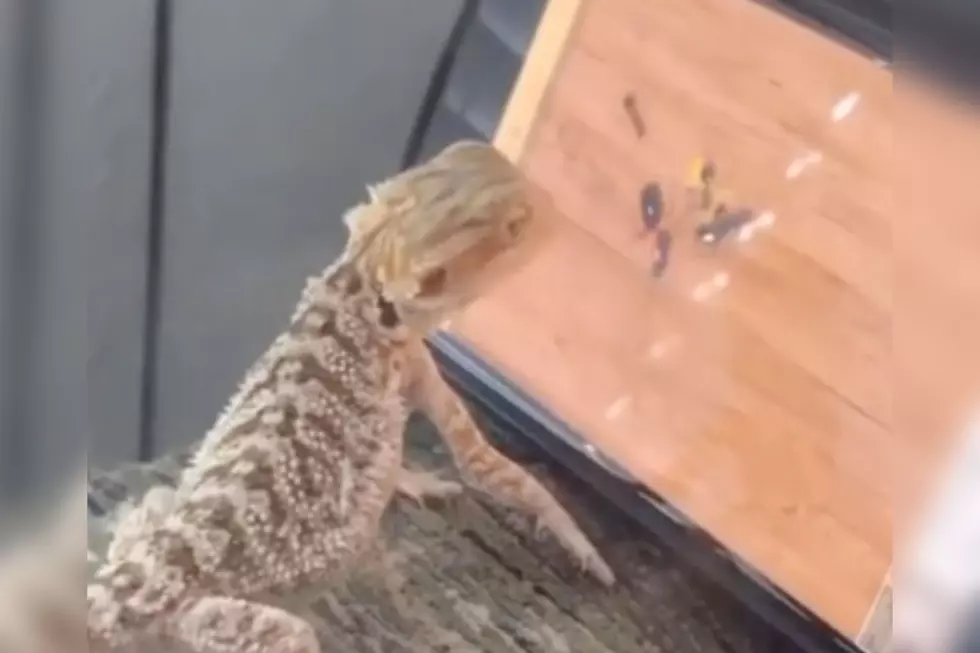
Watch Hungry Indiana Bearded Dragon Try To Catch Ants on Game App
Bearded dragons are funny and pretty smart. Oh, did you think the above photo was of an Iguana? Nope, it's a bearded dragon. Wanna know how to tell them apart? It's simple.

What is the difference between a bearded dragon and an iguana?
According to a-z-animals.com,
Bearded dragons are omnivores, while iguanas are herbivores. When comparing the diet of these two lizard species, you may be shocked to learn they are entirely different. While bearded dragons are omnivores, meaning they eat both meat and plants, iguanas are strictly herbivores and only eat plants.
See this bearded dragon is eating a juicy worm.
Another big difference is their looks. Although both make great pets, Iguanas get much larger and have a more elongated head.
This is an Iguana.
I came across a video that shows a bearded dragon trying really hard to catch the meaty little ants running around in a game on a cell phone. He's determined, too.
A family in Kokomo, Indiana, posted the video and this is what they had to say.
My son Tyler set up his phone and Luna would sit there and watch it for long periods of time. He then decided to set his phone inside her tank and see how she would react to the bugs on the app. He then showed me her reactions and we got a kick out of it.
Luna is so cute.
I actually have lots of experience with bearded dragons. I've had one for 6 years as a grandpet. His name is Rango. Isn't he handsome? He loves Mammy.
WATCH OUT: These are the deadliest animals in the world
LOOK: 30 fascinating facts about sleep in the animal kingdom
LOOK: Stunning animal photos from around the world
More From WKDQ-FM







